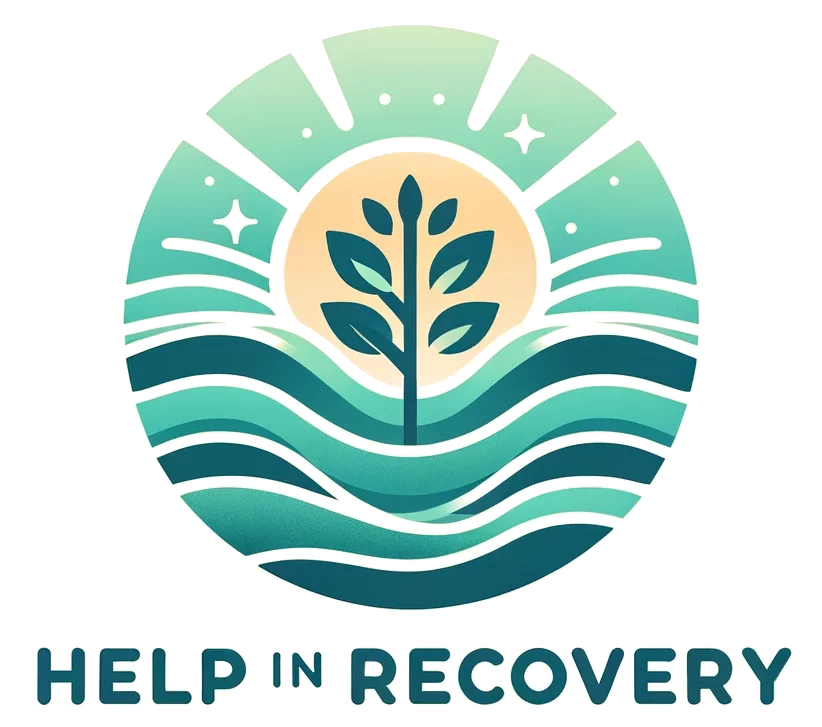Understanding the Basics of Recovery Coaching
Introduction
Recovery coaching has emerged as a pivotal element in the journey towards overcoming addictions. Unlike traditional therapy or counselling, recovery coaching offers a unique blend of support, guidance, and empowerment tailored to individuals grappling with the challenges of addiction. This article aims to demystify the essentials of recovery coaching. For a more comprehensive exploration of this topic, refer to our detailed article on recovery coaching. We will explore its definition, principles, and the impactful role it plays in the recovery process. Whether you are considering recovery coaching for yourself or a loved one or wish to understand this vital field better, this article is your starting point towards comprehending the fundamentals of recovery coaching.
What is Recovery Coaching?
Recovery coaching is an innovative and practical approach to supporting individuals on their journey to overcome addiction. Unlike traditional therapy or counselling, which often delves into psychological analysis and past traumas, recovery coaching is action-oriented and forward-looking. It’s a process that emphasises empowerment, resilience, and practical solutions for the challenges of addiction.
Defining Recovery Coaching:
- Nature and Scope: Recovery coaching is a form of mentorship and guidance that focuses on helping individuals with addiction develop the skills and strategies needed for long-term recovery.
- Client-Centred Approach: Coaches work closely with clients to create personalised recovery plans, including goal setting, identifying triggers, developing coping mechanisms, and building a supportive network.
The Recovery Coach’s Role:
- Guidance and Support: Coaches provide a supportive environment that encourages open communication and trust. They help clients navigate the complexities of recovery, offering insights and advice without being prescriptive.
- Empowering Clients: Recovery coaches empower clients to take charge of their recovery journey, fostering a sense of autonomy and self-efficacy.
Distinguishing from Other Roles:
- Compared to Therapists and Counselors: While therapists and counsellors address mental health issues and delve into past experiences, recovery coaches focus on practical aspects of living a sober life.
- Difference from Sponsors: Unlike sponsors in 12-step programs, who primarily offer peer support based on their own recovery experiences, recovery coaches are often professionally trained and may have a broader perspective on the various pathways to recovery.
Skills and Techniques:
- Active Listening and Empathetic Understanding: Coaches use active listening to truly understand the challenges faced by their clients, providing empathy and validation.
- Motivational Interviewing: This technique is used to help clients find their motivation for change and reinforce their commitment to recovery.
By understanding the role and approach of recovery coaching, one can better appreciate its effectiveness in supporting individuals through their recovery journey.
The Evolution of Recovery Coaching
Recovery coaching has transformed from an informal peer-support activity into a recognised and respected professional discipline. This evolution is a testament to the growing understanding and acknowledgement of the complex needs of individuals in recovery.
Historical Development:
- Early Beginnings: Initially, recovery coaching was more about shared experiences and mutual support in informal settings.
- Professionalisation: Over time, the role of a recovery coach has been formalised, leading to the development of standardised training programs and certification processes.
Adapting to Changing Needs:
- Addressing Diverse Challenges: As the understanding of addiction and recovery has evolved, so has the role of recovery coaches, adapting to meet the diverse and complex needs of those in recovery.
- Holistic Approach: Modern recovery coaching considers the whole person – physical, mental, emotional, and sometimes spiritual aspects of recovery.
Impact on Recovery Landscape:
- Filling a Gap in Recovery Support: Recovery coaching has filled a crucial gap between clinical addiction treatment and self-help groups.
- Promoting Long-term Recovery: By focusing on sustainable lifestyle changes and personal growth, recovery coaching is vital in promoting long-term recovery.
Understanding the historical context and development of recovery coaching sheds light on its current practices and its crucial role in contemporary addiction recovery strategies.
The Principles of Recovery Coaching
Recovery coaching is built upon a foundation of fundamental principles that guide its practice and philosophy. These principles are crucial for understanding the effectiveness and approach of recovery coaching in supporting individuals through their recovery journey.
Understanding the Principles:
- Empathy and Compassion: The ability to empathise with clients is central to recovery coaching. Coaches strive to understand the client’s perspective, offering compassion and a non-judgmental space.
- Client-Centred Approach: Each client’s journey is unique, so the approach is tailored. Recovery coaches work collaboratively with clients to identify their specific needs and goals.
- Empowerment: A core objective is to empower clients, enabling them to recognise their strengths and potential for change. This involves fostering a sense of self-efficacy and resilience.
- Holistic Perspective: Recovery coaching adopts a holistic approach, considering all aspects of a client’s life, including physical, mental, social, and sometimes spiritual components.
Implementing Core Principles in Practice:
- Building Trust and Rapport: Establishing a trusting relationship is foundational. Coaches build strong client rapport through active listening, empathy, and consistent support.
- Goal Setting and Planning: Coaches assist in setting realistic and achievable goals developing action plans that break down larger objectives into manageable steps.
- Encouraging Self-Discovery: Through reflective conversations and exploratory questions, coaches guide clients in self-discovery, gaining insights into their motivations and challenges.
- Promoting Self-Care: Emphasising the importance of self-care practices is vital to recovery, aiding clients in identifying activities that support their overall well-being.
Ethics and Boundaries:
- Maintaining Professional Ethics: Recovery coaches adhere to a code of ethics that ensures professionalism and respect for client confidentiality and autonomy.
- Setting Boundaries: Coaches must establish clear boundaries to maintain a professional and effective coaching relationship.
Techniques and Tools:
- Active Listening and Empathy: Fundamental tools in a coach’s arsenal include active listening skills and empathising with the client’s experiences and emotions.
- Motivational Interviewing: A technique to help clients find internal motivation to change and reinforce their commitment to recovery.
- Solution-Focused Strategies: Coaches often employ solution-focused strategies to help clients overcome obstacles and focus on solutions rather than problems.
Challenges in Implementing Principles:
- Adapting to Individual Needs: One of the challenges in recovery coaching is adapting these principles to suit the varied needs and circumstances of different clients.
- Continuous Learning and Adaptation: Coaches must continually update their knowledge and skills to provide the best support possible, reflecting ongoing developments in addiction recovery.
By adhering to these principles, recovery coaches can provide invaluable support that complements other forms of addiction treatment, offering a unique and essential contribution to the client’s journey towards long-term recovery and well-being.
The Role and Functions of a Recovery Coach
The role of a recovery coach is multifaceted and dynamic, adapting to the unique needs of each individual they assist. Understanding these roles and functions is critical to appreciating the significant impact a recovery coach can have on a person’s journey to recovery.
Diverse Roles of a Recovery Coach:
- Motivator and Cheerleader: Recovery coaches act as motivators, inspiring clients to persevere through their recovery journey. They celebrate their successes and encourage them during challenging times.
- Mentor and Guide: As mentors, coaches share their wisdom and experience, guiding clients towards positive life choices and healthier coping mechanisms.
- Resource Broker: Coaches connect clients with necessary resources, be it treatment facilities, support groups, or other community resources that can aid in their recovery.
- Advocate and Ally: In their advocacy role, coaches stand up for the needs and goals of their clients, ensuring that their voices are heard and respected in all aspects of their recovery journey.
- Lifestyle Consultant: Recovery coaches often advise on lifestyle adjustments that support a sober life, including healthy habits, stress management, and relationship advice.
Essential Functions in the Recovery Process:
- Goal Setting and Planning: Recovery coaches work with clients to set achievable recovery goals and develop actionable plans to reach them.
- Building a Support Network: They assist in creating a robust support network, including family, friends, and professional support systems.
- Coping Skills Development: Coaches teach practical coping skills to manage triggers and stressors, which is essential for maintaining long-term sobriety.
- Relapse Prevention: A significant function is relapse prevention planning, equipping clients with strategies and tools to maintain their recovery.
Understanding the Recovery Journey:
- Navigating Early Recovery: The early stages of recovery are often the most challenging. Coaches provide crucial support and guidance during this period, helping clients lay a solid foundation for their recovery.
- Managing Life Transitions: Coaches support clients through significant life changes, ensuring these transitions don’t derail their recovery efforts.
- Enhancing Self-Awareness and Personal Growth: Coaches encourage self-reflection, helping clients gain insights into their behaviours and thought patterns and fostering personal growth.
Techniques and Approaches:
- Active Listening and Empathy: Fundamental to the coach’s role is the ability to listen actively and empathise with the client’s experiences, providing a safe and understanding space.
- Solution-Focused Strategies: Coaches often use solution-focused techniques to help clients identify practical solutions to their challenges.
- Motivational Interviewing: This approach is used to help clients find their internal motivation for change and strengthen their commitment to recovery.
Challenges and Adaptability:
- Meeting Diverse Needs: Recovery coaches must adapt their approach to meet the varied needs of different clients, which can be a challenging aspect of the role.
- Continuous Professional Development: Coaches must continually update their skills and knowledge, staying abreast of the latest developments in addiction recovery to provide the most effective support.
By fulfilling these roles and functions, recovery coaches play a vital part in the recovery process, offering guidance, support, and resources that are instrumental in helping individuals achieve and maintain sobriety.
- Who Can Benefit from Recovery Coaching?
Recovery coaching is not a one-size-fits-all solution; it is tailored to meet the needs of diverse individuals facing various challenges in their recovery journey. Understanding who can benefit most from this support can help recognise when to seek a recovery coach’s services.
Target Demographic:
- Individuals with Substance Use Disorders: The primary focus of recovery coaching is on individuals grappling with drug or alcohol addiction who have acknowledged their addiction and are committed to pursuing a sober lifestyle.
- Those with Recurrent Relapses: Recovery coaching is particularly beneficial for individuals who have experienced multiple relapses. Coaches provide the support and accountability needed to navigate these challenges and work towards sustained sobriety.
- People Facing Addiction-Related Legal Issues: Individuals dealing with legal issues related to their addiction, such as DUIs or other offences, can find valuable support and guidance in recovery coaching to prevent further legal complications.
- Professionals Seeking Confidential Support: Working professionals who prefer confidential and personalised support outside traditional treatment programs may turn to recovery coaches for discreet and tailored assistance.
Benefits of Recovery Coaching for Different Individuals:
- Holistic Support: Recovery coaching offers a holistic approach, considering the various aspects of an individual’s life affected by addiction, including relationships, career, and mental well-being.
- Empowerment and Autonomy: Coaches empower clients to take control of their recovery, encouraging autonomy and self-efficacy.
- Customised Recovery Plans: Each client receives a recovery plan customised to their unique needs, challenges, and goals.
- Support Beyond Clinical Treatment: For those who have undergone clinical treatment or therapy, recovery coaching provides additional support, focusing on practical aspects of maintaining sobriety in daily life.
Addressing Unique Challenges:
- Navigating Early Recovery: The early stages of recovery can be particularly challenging. Recovery coaches provide essential guidance and support during this critical period.
- Managing Life Transitions: For individuals undergoing significant life transitions, such as career changes or relationship shifts, recovery coaches offer support and strategies to manage these changes without relapsing.
- Building and Sustaining a Sober Lifestyle: Coaches work with clients to build and sustain a lifestyle that supports their recovery goals, including developing new hobbies, building healthy relationships, and creating a supportive environment.
Recovery coaching is a versatile and adaptable form of support suited to individuals at various stages of their recovery journey. Whether someone is struggling with the initial steps of acknowledging their addiction or looking to maintain long-term sobriety, recovery coaching can offer the necessary tools and support.
Recovery Coaching Techniques
Recovery coaching employs various techniques and approaches, each tailored to support individuals in their journey towards sobriety. These techniques are not only effective in helping clients overcome addiction but also in empowering them to build a sustainable, sober lifestyle.
Fundamental Techniques in Recovery Coaching:
- Active Listening: This is the cornerstone of recovery coaching. Active listening involves fully concentrating on what the client is saying, understanding their message, responding thoughtfully, and remembering the information for future discussions. It builds trust and rapport, making clients feel heard and valued.
- Empathetic Understanding: Empathy is the ability to understand and share the feelings of another. Recovery coaches use empathetic understanding to connect with clients on a deeper level, fostering a safe and supportive environment.
- Motivational Interviewing: This technique is used to help clients find their internal motivation to change. It involves asking open-ended questions, affirming clients’ abilities, listening reflectively, and summarising their thoughts to encourage introspection and self-motivated change.
- Solution-Focused Strategies: Recovery coaches often employ solution-focused approaches, concentrating on what clients want to achieve rather than on the problems that brought them to coaching. This technique helps create a positive mindset and focus on future goals.
Techniques for Specific Challenges:
- Managing Triggers and Cravings: Coaches work with clients to identify triggers that might lead to relapse. They then develop strategies and coping mechanisms to handle these triggers effectively.
- Stress Management and Relaxation Techniques: Managing stress is crucial in recovery. Coaches teach various relaxation techniques like mindfulness, meditation, and breathing exercises to help clients cope with stress without resorting to substance use.
- Goal Setting and Action Planning: Coaches assist clients in setting realistic and achievable goals. They help break down these goals into smaller, manageable tasks, making the recovery process less overwhelming.
- Relapse Prevention Planning: Coaches develop comprehensive relapse prevention plans tailored to each client’s specific needs and triggers, equipping them with tools and strategies to maintain their sobriety.
Adapting Techniques to Individual Needs:
- Personalised Approach: Understanding that each client’s journey is unique, recovery coaches tailor their techniques to suit individual needs and preferences.
- Cultural Sensitivity: Coaches are trained to be culturally sensitive, adapting their approaches to fit the cultural background and beliefs of their clients.
- Continuous Assessment and Adjustment: Recovery coaches continually assess the effectiveness of their techniques and are willing to adjust their strategies based on the client’s progress and feedback.
Challenges in Applying Techniques:
- Diverse Client Base: One of the challenges in recovery coaching is the diverse nature of clients, each with their unique set of issues and backgrounds.
- Staying Updated with Best Practices: Recovery coaches must stay informed about the latest developments and best practices in addiction recovery to ensure they use the most effective techniques.
By employing these varied techniques, recovery coaches provide essential support and guidance, helping clients navigate the complexities of addiction recovery and work towards a healthier, sober life.
Choosing the Right Recovery Coach
Selecting the proper recovery coach is a crucial step in the recovery journey. The effectiveness of the coaching process largely depends on the compatibility and trust between the coach and the client. Understanding what to look for and how to choose a coach can significantly impact the success of the recovery process.
Key Considerations in Selecting a Recovery Coach:
- Experience and Expertise: Consider a coach’s experience in addiction and recovery. Look for coaches who have a deep understanding of substance use disorders and the recovery process.
- Training and Certification: Verify the coach’s training and credentials. Certified recovery coaches have undergone specific training that equips them with the necessary skills and knowledge.
- Approach and Philosophy: Different coaches have different approaches. Some focus on a holistic perspective, while others emphasise practical strategies. Choose a coach whose approach resonates with your beliefs and needs.
- Communication Style: Effective communication is vital in a coaching relationship. Ensure the coach’s communication style aligns with what makes you feel comfortable and understood.
Assessing Compatibility and Comfort:
- Personal Rapport: The relationship between a coach and client should be built on trust and rapport. It’s important to feel comfortable and connected with your coach.
- Empathy and Understanding: Look for a coach who demonstrates empathy and a genuine understanding of your situation and challenges.
- Cultural and Personal Sensitivity: Consider a coach sensitive to your cultural background and personal circumstances, ensuring that the coaching process is respectful and inclusive.
Questions to Ask Potential Coaches:
- Experience with Specific Challenges: Ask about their experience dealing with your specific challenges or issues.
- Success Stories and Testimonials: Inquire about success stories or testimonials from previous clients to gauge the coach’s effectiveness.
- Methodology and Tools: Understand the coach’s tools and methods, ensuring they align with what you are looking for in your recovery journey.
- Availability and Support: Discuss the coach’s availability and the level of support you can expect, including frequency of meetings and accessibility outside of sessions.
Making an Informed Decision:
- Consultation Sessions: Many coaches offer initial consultation sessions. Use these sessions to understand the coach’s style and approach.
- Trust Your Instincts: Your instinctual feeling about a coach is often an important indicator. Trust your gut feeling when making a decision.
- Long-term Compatibility: Consider whether the coach is someone you can work with over the long term, as recovery is often a prolonged journey.
Choosing the proper recovery coach is a personal and significant decision. It requires careful consideration of various factors, including the coach’s experience, approach, and compatibility with your recovery goals. A well-matched recovery coach can provide invaluable support, guidance, and empowerment throughout your journey to recovery.
The Impact and Benefits of Recovery Coaching
Recovery coaching has a profound impact on individuals navigating the complex journey of addiction recovery. Understanding the multifaceted benefits of this approach can illuminate why recovery coaching is increasingly seen as an essential component of effective addiction treatment.
Wide-Ranging Benefits of Recovery Coaching:
- Enhanced Sobriety Success Rates: Recovery coaching has significantly improved the chances of maintaining long-term sobriety. Coaches provide the necessary support, accountability, and guidance that can make a difference in sustaining recovery.
- Improved Coping Strategies: Coaches equip clients with effective coping strategies to deal with stress, cravings, and triggers, reducing the likelihood of relapse.
- Holistic Life Improvement: Recovery coaching goes beyond addressing substance use; it also focuses on improving other areas of life, including relationships, career, and personal development, leading to overall life satisfaction and stability.
- Increased Self-Awareness and Personal Growth: Coaches encourage introspection and self-discovery, helping clients gain deeper insights into their behaviours, thought patterns, and underlying issues contributing to addiction.
Support Beyond Clinical Treatment:
- Bridging the Gap Post-Treatment: Recovery coaching effectively bridges the gap between clinical treatment and real-world challenges, offering support in implementing and sustaining lifestyle changes post-treatment.
- Continuous Support and Accountability: Unlike periodic therapy sessions, recovery coaching often provides more frequent and ongoing support, keeping clients accountable and motivated.
Empowerment and Empathy:
- Fostering Empowerment and Autonomy: Coaches empower clients to take control of their recovery journey, fostering a sense of autonomy and self-efficacy.
- Providing Empathetic Support: The empathy and understanding coaches offer can comfort and strengthen clients, especially during difficult times.
Tailoring to Individual Needs:
- Customised Recovery Plans: Recovery coaching is highly personalised, with coaches tailoring their approach to meet the specific needs, goals, and circumstances of each client.
- Cultural and Personal Sensitivity: Coaches are trained to be sensitive to their clients’ cultural and personal backgrounds, ensuring an inclusive and respectful coaching process.
Navigating Life Transitions and Challenges:
- Guidance Through Life Transitions: Recovery coaches provide valuable guidance and support as clients navigate significant life transitions, which can often trigger relapse.
- Building and Sustaining Healthy Relationships: Coaches assist in building healthy personal and professional relationships, an essential component of a stable recovery journey.
Community Connection and Networking:
- Connecting with Recovery Communities: Recovery coaches help clients connect with broader recovery communities and resources, fostering a sense of belonging and support.
- Networking for Professional and Personal Development: Coaches can also assist in networking for career development and personal growth opportunities, further supporting clients’ reintegration into a fulfilling life.
The impact and benefits of recovery coaching are extensive, addressing the addiction and broader aspects of clients’ lives. This comprehensive approach is critical to the effectiveness of recovery coaching in facilitating long-term recovery and overall well-being.
Conclusion
As explored throughout this article, recovery coaching is a vital and multifaceted component of addiction recovery. It offers more than just a pathway to sobriety; it provides a comprehensive approach to rebuilding and enhancing life post-addiction. The conclusion of this article aims to encapsulate the key insights and encourage further action or exploration.
Summarising the Role of Recovery Coaching:
- Beyond Sobriety: Recovery coaching extends beyond achieving sobriety, encompassing overall well-being, personal growth, and life satisfaction.
- Empowerment and Personal Growth: One of the most significant aspects of recovery coaching is empowering individuals fostering autonomy, resilience, and a sense of self-worth.
- Holistic and Tailored Approach: The holistic and customised nature of recovery coaching ensures that each individual’s unique journey is respected and catered to.
Encouraging Further Exploration and Action:
- Seeking Recovery Coaching: For those considering recovery coaching, this article encourages exploring this option further. Recovery coaches can offer the support and guidance necessary to navigate the complex recovery journey.
- Continuous Learning and Growth: Recovery is an ongoing process of learning and growth. Engaging with a recovery coach can facilitate this process, offering new perspectives and insights.
Invitation for Further Engagement:
- Reaching Out for Support: If you or someone you know is struggling with addiction, consider reaching out to a recovery coach. The personalised support and guidance provided can be instrumental in the recovery journey.
- Exploring Additional Resources: This article is just the beginning. Explore additional resources, articles, and support networks available for those in recovery.
Final Thoughts:
- Hope and Possibility: Recovery coaching embodies the principles of hope and the possibility of a better, sober life. It’s a testament to the strength and resilience of the human spirit.
- A Call to Action: Whether you are directly affected by addiction or know someone who is, take the next step. Recovery coaching could be the key to unlocking a new chapter in life, one marked by health, happiness, and fulfilment.
In conclusion, recovery coaching is a transformative and powerful tool in the arsenal against addiction. Its impact extends beyond achieving sobriety, offering a chance at a renewed, enriched life. It’s an opportunity to turn challenges into triumphs and despair into hope.







